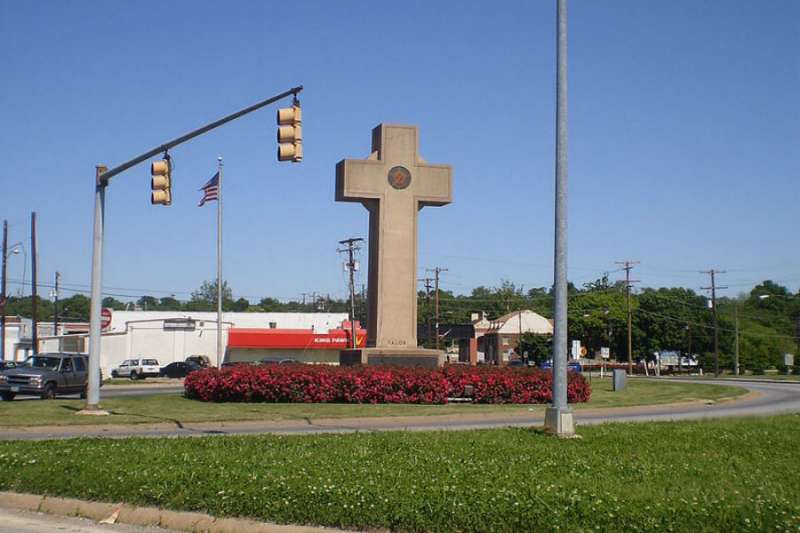A petition has been submitted to the United States Supreme Court as part of an appeal to prevent the destruction of the Peace Cross, a 93-year-old war memorial because it is in the shape of a cross.
The petition was filed by Maryland-National Capital Park and Planning Commission, following a ruling by the United States Fourth Circuit Court of Appeals in October 2017 that declared the monument unconstitutional.
The cross, erected in 1925 by the mothers of fallen World War I servicemen, is located in Prince George’s County, Maryland, just outside of Washington, D.C. It bears a plaque listing the names of 49 residents of Prince George’s County who lost their lives serving in that war. The seal of the American Legion is prominently displayed at the center of the cross. The sides of the cross are inscribed with the words “valor,” “endurance,” “courage,” and “devotion.”
The monument was the subject of a 2014 lawsuit brought by the American Humanist League. The suit was originally rejected by the District Court, which held that it was “uncontroverted” that the maintenance and display of the memorial was not “driven by a religious purpose whatsoever.”
The American Humanist League appealed the case, and the Fourth Circuit found the memorial to violate the establishment clause of the Constitution, which guards the separation of church and state.
In a divided opinion, the circuit court judgment held that because the memorial was in the shape of a cross - “the preeminent symbol of Christianity” - it lacked any meaningful “connection” to national history and government and was inherently “sectarian.” The decision also held that even minimal expenditure by the Commission to maintain the monument “entangled” the state in religion and would lead “any reasonable observer” to conclude that the state was placing “Christianity above other faiths” or viewed “being American and Christian as one and the same.”
The petition to the Supreme Court argues that there has been no previous challenge to the shape of the memorial, which has been in continuous use by the American Legion as a site for patriotic events in honor of fallen soldiers. Moreover, the petition argues, it has never been used for a religious ceremony and the only known connection of the monument to a religious event was 87 years ago.
The monument has been under the management of the Maryland-National Capital Park and Planning Commission since 1961, as part of its management of the roadway median where it is located.
Unless the Supreme Court agrees to hear the case, the cross must have its arms knocked off, be moved off public land, or destroyed completely.
Lawyers for the Park Commission argue that the cross was not erected to promote or convey a religious message, but to resemble the World War I cemeteries of Europe. They also point out that the “absolutist” approach taken by the circuit court decision would be immediately applicable to memorials across the country, including Arlington National Cemetery.
Fourth Circuit Chief Judge Roger Gregory wrote a dissenting opinion. He and other dissenting judges noted that the decision, if it stands, would invalidate virtually any public display in the shape of a cross, including military medals, regardless of how longstanding the usage or neutral their purpose.
Public monuments with religious symbols have been repeatedly challenged by secularists, and the Fourth Circuit decision represents a split with earlier court findings which have recognized the passive nature of such memorials and the lack of religious intent by the state in maintaining them. It is expected that this divergence of judicial findings could make the case ripe for Supreme Court consideration.

